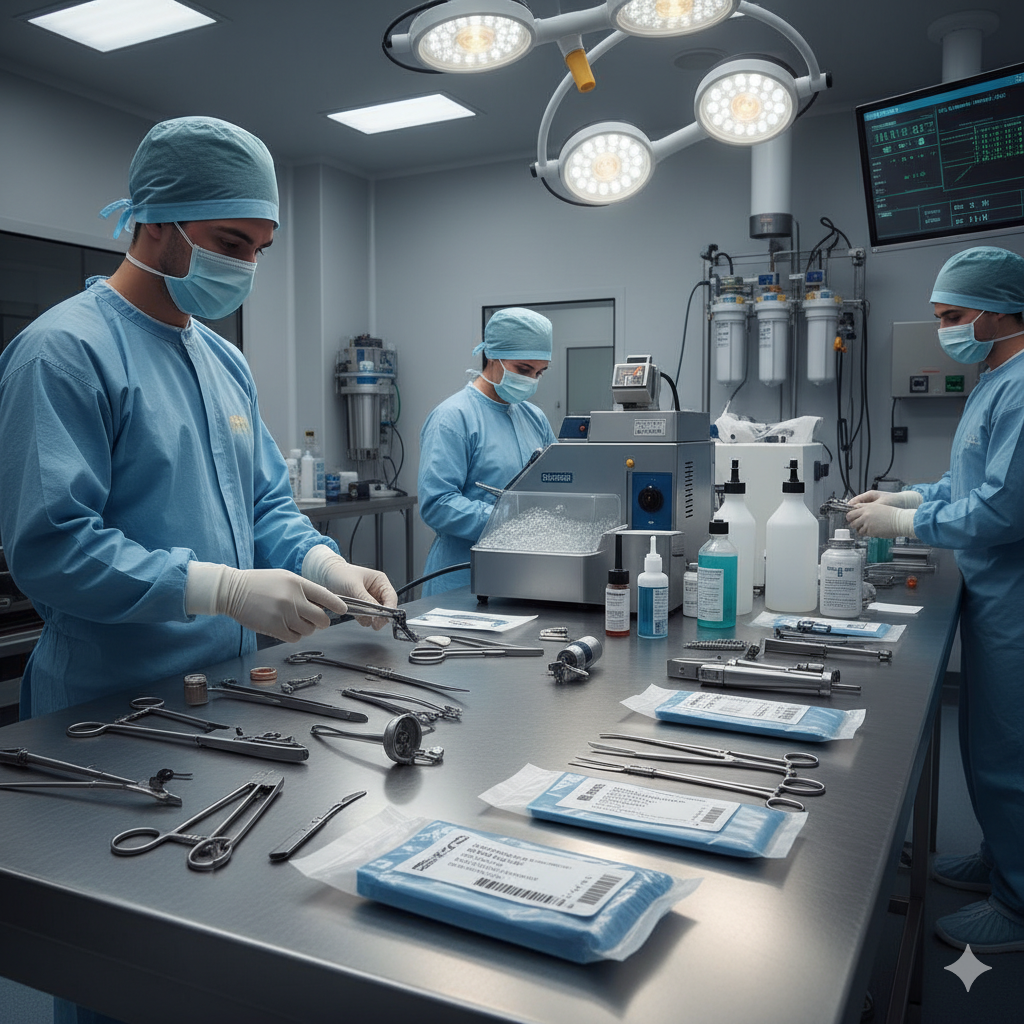-
أخر الأخبار
- استكشف
-
المدونات
-
سوق المنتجات
Single-Use Medical Devices Reprocessing Market Development via Cost-Benefit Demonstrations and ROI Analysis

The global single-use medical devices reprocessing market is growing significantly as healthcare providers seek cost-efficient, sustainable and safe alternatives to procuring new single-use devices. The reprocessing workflow typically includes collection, cleaning, functional testing, sterilization and repackaging of devices originally labeled for one-time use. Adoption is driven by cost pressures, environmental waste reduction mandates, and regulatory frameworks supportive of validated reprocessing practices.
Download Sample PDF:
Market Segmentation
-
By Device Type: Class I Devices (e.g., tourniquet cuffs, compression sleeves); Class II Devices (e.g., catheters, guide wires, oximeter sensors)
-
By Application: Cardiology; General Surgery; Orthopaedic & Arthroscopy; Gastroenterology; Urology; Others
-
By End-User: Hospitals; Ambulatory Surgical Centers; Specialty Clinics; Others
-
By Region: North America; Europe; Asia-Pacific; Latin America; Middle East & Africa
Regional Insights
-
North America: The leading region, backed by mature regulatory pathways, established third-party reprocessing providers and strong cost-containment drives in healthcare.
-
Europe: A significant market, with growing sustainability mandates, hospital procurement efficiencies and regulatory acceptance of reprocessed devices.
-
Asia-Pacific: One of the fastest-growing regions, with increasing surgical volumes, rising cost pressure in healthcare systems and growing awareness of medical-waste reduction.
-
Latin America & Middle East & Africa: Emerging opportunities in these regions, though growth may be moderated by regulatory clarity, infrastructure and reimbursement hurdles.
Key Market Drivers
-
Cost reduction in healthcare procurement: Reprocessing of previously single-use devices allows hospitals and surgical centres to reduce equipment costs significantly.
-
Environmental sustainability and waste reduction: Hospitals, health systems and regulators are placing increasing emphasis on reducing medical waste, making device reprocessing an attractive option.
-
Advances in sterilization, functional testing and traceability technologies: These improvements enhance confidence and acceptance in reprocessed device performance and safety.
-
Regulatory & reimbursement support for validated reprocessing programs: As frameworks evolve to permit and govern device reprocessing, adoption accelerates.
Market Challenges
-
Quality, safety and liability concerns: Some healthcare providers remain cautious about infection risk, device performance and regulatory compliance when using reprocessed devices.
-
Regulatory and validation complexity: Ensuring that reprocessed devices meet strict performance, sterilization and traceability standards requires robust infrastructure and protocols.
-
Adoption barriers in emerging regions: Lack of clear regulatory pathways, limited third-party reprocessor presence and variable hospital procurement practices may slow market growth in some geographies.
Leading Market Players
Key companies operating in the single-use medical devices reprocessing market include:
-
Stryker Corporation
-
Medline Industries, Inc.
-
NEScientific, Inc.
-
Vanguard AG
-
Sterilmed Inc.
These companies focus on validated reprocessing workflows, partnering with hospitals, ensuring regulatory compliance and expanding global services.
Recent Industry Developments
-
Growth of third-party reprocessing service providers offering validated cleaning, functional testing and sterilization for specific device types (e.g., catheters).
-
Increasing hospital procurement programs emphasising reprocessed devices for high-volume, high-cost consumables to reduce expenditures and waste.
-
Expansion of sustainable healthcare initiatives and hospital-system programmes that integrate device reuse and waste-reduction strategies.
-
Technological improvements in device tracking, functional-testing automation, sterilisation validation and data return on reused device cycles.
Conclusion
The single-use medical devices reprocessing market offers meaningful growth opportunities, driven by cost-containment pressures in healthcare, environmental sustainability mandates and improved technology/regulatory support. Organisations that offer robust, validated reprocessed device programmes, strong hospital partnerships and efficient service models are well-positioned to benefit. At the same time, addressing safety, compliance and regional adoption challenges will be critical to long-term success.
- Art
- Crafts
- Drinks
- Fitness
- Food
- الألعاب
- Health
- الرئيسية
- Literature
- Music
- Networking
- Finance
- أخرى
- Hotels
- Shopping
- Sports
- Wellness


